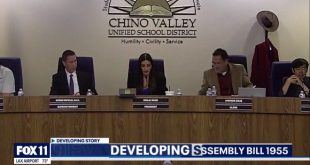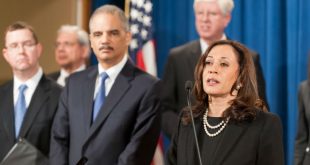 Several years ago, I wrote an article about the difference between the former laws against interracial marriage and laws that affirm the definition of marriage as the union between one man and one woman (see what I did there?) after I’d heard one too many comparisons.
Several years ago, I wrote an article about the difference between the former laws against interracial marriage and laws that affirm the definition of marriage as the union between one man and one woman (see what I did there?) after I’d heard one too many comparisons.
Mildred Jeter and Richard Loving wanted to get married, but such a marriage was illegal in Virginia. In 1958, they crossed the state line to Washington, D.C., where it wasn’t. When they returned a married couple, the government arrested and charged them but suspended sentence on the condition that they leave the state. They sued, and the case reached the U.S. Supreme Court.
The court declared Virginia’s “anti-miscegenation” law (which also banned intimate relations between the races) unconstitutional on the grounds that there was no “legitimate overriding purpose” to prevent whites and blacks from marrying other than discrimination. Denying the couple “this fundamental freedom on so unsupportable a basis as the racial classifications embodied in these statutes,” the court noted “…is surely to deprive all the State’s citizens of liberty without due process of law.”
Loving v. Virginia (1967) didn’t open up marriage to just anyone who wanted to get married. Sisters couldn’t marry their brothers. Mothers couldn’t marry their sons. Men couldn’t marry men, and anyone getting married while being married was still a bigamist. What Loving did was remove racial restrictions that kept unmarried men and woman who were not closely related from marrying. Race and ethnicity are irrelevant factors as far as the state’s interest in marriage is concerned, while the sex of the individuals certainly is relevant.
The court also reasoned that the purpose behind interracial marriage bans was to maintain a subordinate class of people. The bans were created to keep the races apart by government coercion. No one can argue, with a straight face, that marriage protection laws do anything close to that. If a homosexual tells you he’s subordinated or oppressed, or that he can’t “love” who he wants, try not to laugh.
Amy Hall at the Stand to Reason blog writes: “Comparing opponents of same-sex marriage to those who opposed interracial marriage is common, but not accurate.” She quotes Francis Beckwith, who contends that the opposite is true: arguments for redefining marriage have more in common with anti-miscegenation laws of old. These two are similar because “in both cases they introduced a criterion other than male-female complementarity in order to promote the goals of a utopian social movement: race purity or sexual egalitarianism.”
 Black Community News News and Commentary for Christians
Black Community News News and Commentary for Christians




One comment
Pingback: Interracial Marriage Is Not Similar to Same-Sex ‘Marriage’ – Black Community News – For Conservatives | CarolinaSistah